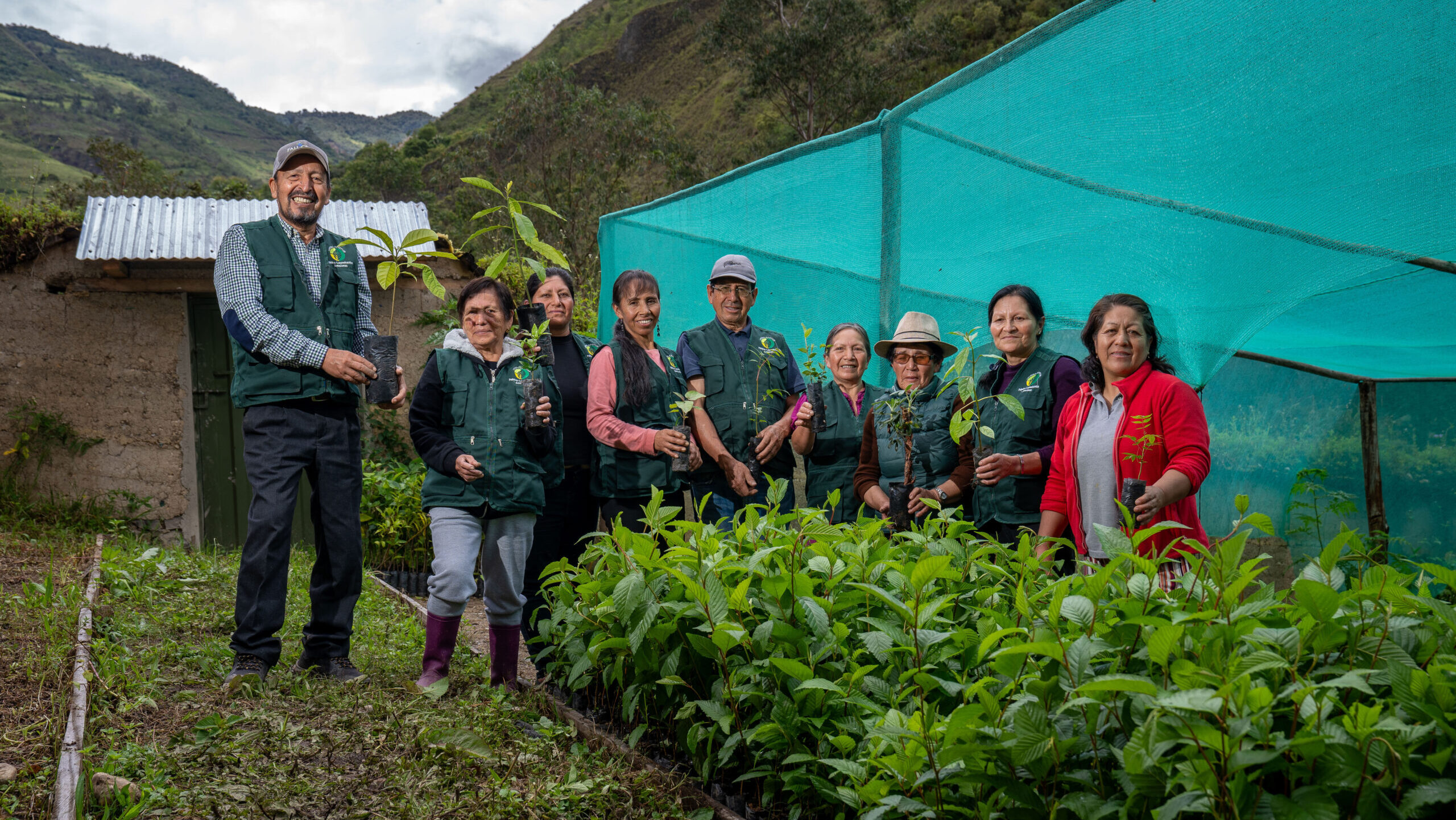Environmental committees and their hard work in the Waterfall Valley

In the province of Bongará, in Amazonas, is the Valley of the Waterfalls, a magical natural space where the communities of Cuispes, Cocachimba, San Pedro de Valera and La Coca are located. Activities have been carried out in these areas to regenerate forests and reforest native trees. The environmental committees are in charge of these activities, groups that were created in alliance with the platform Conservamos por la Naturaleza of the Peruvian Society of Environmental Law (SPDA). Their main objective? The conservation of the degraded area of the valley.
In 2023 alone, these committees reforested more than 18,000 native trees in the communities of San Pablo, Cocachimba and La Coca. Among the species recovered are lemon grass, alder, blackberry, pajuro and guaba. The alder, cedar, shaina and the millenary quina were planted along the roads that connect the Gocta waterfall with Cocachimba and San Pablo. In addition, seedlings were reproduced in local nurseries to continue reforestation work.
In Cuispes, a municipal nursery was built and put into operation, which is expected to produce 50,000 alder, coffee and cinchona seedlings by 2024. The aim is to generate agroforestry systems that regenerate areas degraded by cattle ranching and, above all, have a low impact on the ecosystem. In addition, 26 conservation agreements were signed with members of the Cuispes farming community to strengthen the joint commitment to protect the area’s natural environment.

In addition to all this, we have collaborated with Private Conservation Areas (ACP) in the area by providing training to the communities that are part of the valley, such as the workshop focused on the use of camera traps, which included the donation of two of these cameras to the Environmental Management Committee of the San Pablo Gocta ACP. The Framework Cooperation Agreement with the Universidad Nacional Toribio Rodríguez de Mendoza (UNTRM), which will increase efforts to conserve the Waterfall Valley and improve local development, should not go unmentioned.
Undoubtedly, the work of the environmental committees is transcendental and makes a difference in the conservation of degraded areas. It is also important to highlight initiatives such as SPDA’s Conservamos por Naturaleza, which through the “Reforestamos por Naturaleza” campaign seeks to contribute with options such as “Adopt a tree” and which together add to the great struggle to stop the deforestation of our forests.